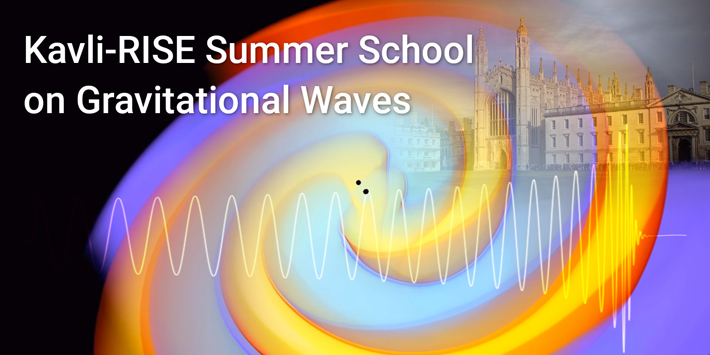CTC to host Summer School on Gravitational Waves
Gravitational Wave Astrophysics is at the dawn of what will become one of the great scientific endeavours of the 21st century.
The first detection of gravitational waves in 2015, awarded the 2017 Nobel Prize in Physics, has been a revolutionary step forward in physics and astronomy by opening a totally new window for the exploration of the universe. LIGO and Virgo have by now detected ten black-hole binaries and the binary neutron star merger GW170817 that was observed simultaneously across the entire electromagnetic spectrum. Through these observations, the new field of Gravitational Wave Astronomy has already yielded new insights ranging from the origin of the heaviest elements, a new estimate of the Hubble constant, and unprecedented constraints on modifications of general relativity. Few areas offer a more compelling argument for interdisciplinary research, combining multi-messenger astronomy with technical mathematical theory and simulation, as well as sophisticated statistical data analysis.
Gravitational wave physics has also triggered a widespread interest and excitement among students and the new generations of young scientists, who will soon constitute the backbone of each research institute willing to develop research in this area. The Kavli Institute of Cosmology at Cambridge, together with support from the EU's RISE project "Strong Gravity and High-Energy Physics", will hold a summer school on gravitational waves at the Centre for Mathematical Sciences from Sep 23-27, 2019.
http://www.ctc.cam.ac.uk/activities/rise
This school will introduce young scientists to cutting-edge methods and technology to explore our universe through this new observational channel. For this purpose, we bring together world-leading experts to review the state-of-the-art and beyond in the modelling of gravitational wave sources, the theoretical foundations underlying their physics and that of their astrophysical environment as well as the challenges in the acquisition and analysis of observational data. From analytic methods to computations on supercomputers and from astrophysics to the theoretical framework of gravity, the new and upcoming generation of new scientists will receive extensive training in all aspects of one of the most exciting and rapidly growing research fields of our era.

